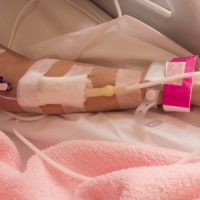 Total Parenteral Nutrition (TPN) is a critical medical treatment that provides essential nutrients to patients who cannot consume food orally. While TPN is a valuable lifeline for many patients, it is not without its potential complications. In this blog post, we will explore several common TPN complications, including infection, metabolic imbalances, and liver dysfunction. We will also provide guidance on how to manage these complications to ensure the best possible outcomes for patients.
Total Parenteral Nutrition (TPN) is a critical medical treatment that provides essential nutrients to patients who cannot consume food orally. While TPN is a valuable lifeline for many patients, it is not without its potential complications. In this blog post, we will explore several common TPN complications, including infection, metabolic imbalances, and liver dysfunction. We will also provide guidance on how to manage these complications to ensure the best possible outcomes for patients.
1. Infection
Infection is one of the most significant complications associated with TPN. The central venous catheter (CVC) used to administer TPN can become a source of infection if proper care is not taken. Catheter-related bloodstream infections (CRBSIs) can lead to serious complications and pose a significant risk to patient health.
To manage and prevent infections, strict aseptic techniques must be followed during the insertion and care of the CVC. This includes proper hand hygiene, using sterile gloves and drapes, and ensuring a clean and sterile environment during dressing changes. Regular monitoring and assessment of the CVC site for signs of infection, such as redness, swelling, or discharge, are crucial. If an infection is suspected, prompt medical intervention, including appropriate antibiotics and possibly catheter removal, may be necessary.
2. Metabolic Imbalances
Metabolic imbalances can occur as a result of TPN. These imbalances may include abnormalities in electrolyte levels, such as sodium, potassium, magnesium, and phosphate, as well as imbalances in glucose and calcium levels.
Regular monitoring of electrolyte levels is essential to detect and manage these imbalances promptly. If imbalances are identified, the TPN formula may need to be adjusted to correct the abnormalities. Coordinating with a clinical pharmacist or nutrition support team is beneficial in ensuring appropriate modifications to the TPN solution. Adjustments may involve changing the concentration or composition of the TPN solution to restore electrolyte balance.
3. Liver Dysfunction
Liver dysfunction is another potential complication associated with long-term TPN use. Prolonged TPN can lead to liver damage, known as parenteral nutrition-associated liver disease (PNALD). PNALD is characterized by abnormal liver function tests, hepatomegaly (enlarged liver), and in severe cases, cholestasis (impaired bile flow).
Management of liver dysfunction involves a multidisciplinary approach. Consultation with a hepatologist or gastroenterologist is crucial for monitoring liver function tests regularly and determining appropriate interventions. Modifying the TPN formula may help mitigate the progression of liver disease. Utilizing lipid emulsions within the TPN that contain omega-3 fatty acids or medium-chain triglycerides may be beneficial in supporting liver function. Additionally, gradually weaning patients off TPN and transitioning to enteral nutrition, if possible, can help reduce liver dysfunction.
4. Gallbladder Complications
TPN can also impact the gallbladder, leading to the formation of gallstones and gallbladder dysfunction. The lack of enteral feeding and the absence of normal bile flow during TPN can contribute to the development of gallstones. Gallbladder stasis, which refers to the sluggish movement of bile, can occur due to the absence of normal feeding patterns.
To manage gallbladder complications, regular monitoring for symptoms such as right upper quadrant pain and assessing for gallbladder dysfunction is important. If gallstones are detected, consultation with a gastroenterologist or general surgeon may be necessary to determine the appropriate course of action, which may involve medication or surgery if needed.
5. Fluid Overload
Fluid overload is a potential complication that can arise from the administration of TPN. Overloading with fluids can lead to pulmonary edema and compromise respiratory function. It is imperative to monitor patients’ fluid status closely, taking into account daily fluid requirements based on individual needs. Adjustments to the TPN solution, including the volume and rate of administration, may be necessary to prevent fluid overload.
Regular clinical assessment, including monitoring vital signs, lung sounds, and daily weights, can help identify signs of fluid overload. If fluid overload is suspected, reducing the volume or rate of TPN administration and adjusting fluid intake from other sources may be necessary. Consultation with a healthcare provider, such as a nutritionist or physician, should be sought to determine the appropriate fluid management strategy.
Summary
While TPN is a vital tool for providing essential nutrients to patients who are unable to consume food orally, it is not without potential complications. Managing and preventing complications associated with TPN requires a comprehensive approach that includes strict infection control practices, regular monitoring of metabolic imbalances, liver function, gallbladder health, and fluid status. Collaboration between healthcare providers, including pharmacists, nutrition support teams, gastroenterologists, hepatologists, and surgeons, is essential in managing and mitigating these complications. By proactively addressing and managing complications, healthcare professionals can optimize the safety and effectiveness of TPN for their patients.
Need Naturopath in Whittier, CA?
Since 1985, Chemique Pharmaceuticals, Inc. has been a recognized leader in the infusion pharmacy industry based in Wittier, California. Our therapies include compounded solutions for parenteral antibiotics, chemotherapy, pain medications, total Parenteral Nutrition (T.P.N), and other drugs. Some of our services include antibiotic therapies, hydration therapies, hormone replacement therapies, continuous or cyclical Total Parental Nutritional IV support, and more. At Chemique Pharmaceuticals, Inc. we are dedicated to having you feel your best. Call us today for more information!

